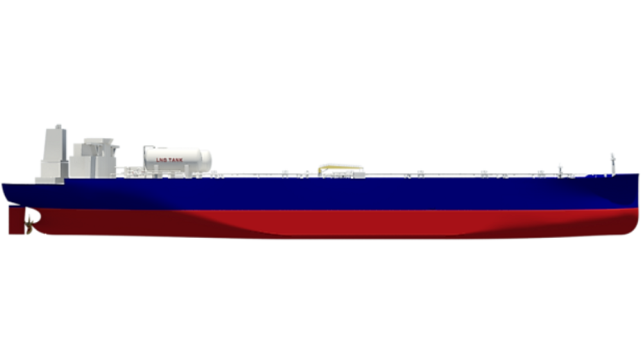Shell Charters 10 New LNG-Fueled Oil Tankers

Royal Dutch Shell has reached an agreement with three shipowners to build and charter a total of 10 dual fuel LNG-powered very large crude carriers, with the first entering into operation in 2022. All will be built at DSME, and all will be chartered to Shell for the first seven years.
The main engines were selected for minimal methane slip, and the hull design is intended to maximize fuel efficiency, Shell said. “The vessels have been designed with state-of-the-art technologies and not only achieve a huge reduction in greenhouse gas emissions but are also economically viable," said DSME president and CEO Sung Geun Lee in a statement.
According to Shell, the order is expected to bring the total global dual-fuel LNG fleet to 475 vessels by 2023. The rapid uptake of LNG as a marine fuel is a commercially important development for Shell, which is also the world's largest commodity buyer and seller of LNG.
Shell already offers LNG as a marine fuel at major ports in Europe, Asia and North America. By 2023, it expects that marine LNG demand will reach around 3.6 million tonnes worldwide, with 45 bunker vessels expected to be in service.
"LNG has the benefit of being an abundant and low-cost fuel source and importantly produces 30 percent less carbon emissions," said Tugrul Tokgoz, CEO of Advantage Tankers, one of the three owners participating in the agreement.

that matters most
Get the latest maritime news delivered to your inbox daily.
Of the widely-available marine fuels on the market today, LNG has the lowest carbon emissions, though the improvement is partially offset by methane emissions from fuel production, transportation and incomplete combustion. Compared with fuel oil, LNG also produces far less black carbon, a particulate pollutant with warming potential.
“It is imperative that the shipping sector immediately employs the cleanest fuels available. Today and for the foreseeable future, LNG is the choice for new builds to ensure we are not adding heavier emitters into the global fleet while we work hard at developing zero-emissions fuels,” said Grahaeme Henderson, Global Head of Shell Shipping & Maritime.
